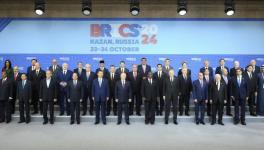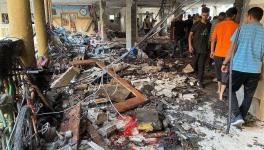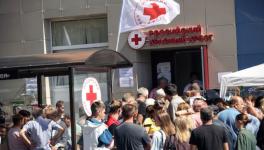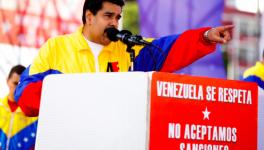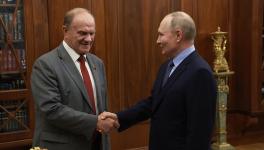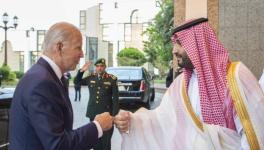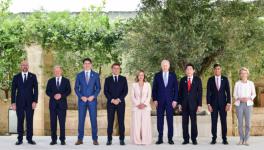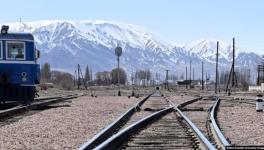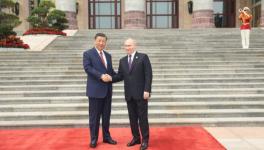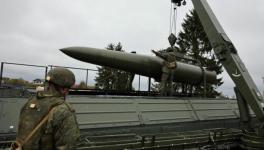What, Exactly, is Going on in Syria?

Photo Credit: Dona Bozzi / Shutterstock
Developments in the Syrian War are not easy to follow. Disunity amongst the armed opposition groups means that there are lists and lists of brigades and local outfits that are meaningful in their areas but hard to remember if you are not focused on the war. What these groups believe is not easy to fathom. Most of them fly the flag of religion, and many of them are guided by clerics who are influenced by Saudi Arabia. Even if the fighters do not have fealty to hardened religious ideology, their guns are pointed in the service of these agenda. At the center of them is al-Qaeda, formed in Afghanistan in 1988 and now a worldwide phenomenon with armies in Syria, Yemen and North Africa as well as secret cells in other parts of the world. In Yemen and in Syria, al-Qaeda – which was once a mysterious terror network – holds cities and towns. With the rise of ISIS in northern Syria and Iraq, al-Qaeda has even made a claim to being the moderate face of extremism. This is a confounding thought, echoed not only in the Gulf Arab states but also in the halls of US intelligence agencies.
Over the past several years, al-Qaeda’s proxies in Syria have cleverly changed their name to suit the moment. From Jabhat al-Nusra (Victory Front) to Jabhat Fateh al-Sham (Conquest Front) to the most recent instantiation – Tahrir al-Sham (Liberation of Syria). Each time a new group emerges it announces that it is not affiliated to al-Qaeda directly. But few observers are fooled by this conceit. The flags are the same, the ideological grip is evident and the leadership continues to have the same kind of affiliations to the global network. The new group – called Hetish, an acronym of its full name – combines various groups that have decided to stay away from the most recent peace discussions that took place in Astana (Kazakhstan). These include hardened extremists, but also groups – such as Harakat Nouriddeen al-Zinki – that had been seen by the United States as moderates and had received arms and training.
But this grouping – Hetish – is not merely another al-Qaeda incarnation. It is also a function of great turmoil within the ranks of the armed opposition. There is a clear sense in their ranks that the government is in a strong position and that it has been weakened by the desertion of Turkey as one of its main proxies and conduits. The Saudi and Kuwaiti clerics based in Syria – such as Sheikh Abdullah al-Muheisseni and Abu Hassan al-Kuwaiti – have long tried to secure some kind of united formation of the armed opposition. But they have not succeeded, as each armed opposition formation – backed by Turkey (Ahrar al-Sham), Saudi Arabia (Jaysh al-Islam) and al-Qaeda (Jabhat al-Nusra) – has felt that it has the advantage and will win alone. Now, with Turkey deserting the armed opposition and Saudi Arabia stuck in its Yemeni quagmire, these groups have been abandoned by their patrons and disillusioned by defeat. That is what has brought them together.
The Russians, Iranians and Syrian government called for the Astana (Kazakhstan) meeting in late January from a position of strength. It was a meeting for Turkey to establish itself as a major interlocutor for the eventual ceasefire that will come for Syria. The main Saudi proxy – Jaysh al-Islam – led the delegation of the armed opposition, a clear sign that Saudi Arabia has thrown in the towel. Turkey’s leading proxy – Ahrar al-Sham – did not attend, but sent its blessings. The United States was not invited. It has been clearly made marginal. It would be too much to expect this meeting alone to bring peace to Syria. But it is a process that will take time to unfold.
Turkey’s abandonment of the armed opposition and Saudi Arabia’s indifference to events in Syria led to a deep debate inside the obdurate section of the armed opposition. Ahrar al-Sham, after its defeat in northern Syria, broke apart, with its former leader – Abu Jaber – taking on the leadership of the new al-Qaeda formation - Tahrir al-Sham or Hetish. These are hardened extremists, certainly, but they are not the only ones. The previous al-Qaeda affiliate – Jabhat Fateh al-Sham – remains in place, but it is now frequently accused of drifting into the arms of ISIS after it absorbed the fighters of the pro-ISIS formation Jund al-Aqsa. Meanwhile, Jordanian fighters from this group have left and – with encouragement from the Jordanian cleric Abu Muhammad al-Maqdisi (the mentor of the founder of al-Qaeda in the region Abu Musab al-Zarqawi) – might form a Syrian Taliban. It is a mess. There is no getting around the fact that the armed Syrian opposition is in the grip of a terrible ideological nightmare. In this dream, the Taliban and al-Qaeda begin to seem moderate when compared to ISIS.
#DeirEzzor
Far across the great Syrian Desert near the Iraqi border sits the city of Deir Ezzor. It has long been the Syrian eastern outpost, a lonely town on the edge of sand and Iraq. Four years ago, the Syrian government lost control of the town of Deir Ezzor, which meant that it substantially lost eastern Syria. Withdrawal to protect Damascus and the western cities of Syria meant that the armed groups were able to consolidate themselves in and around the town. By the end of 2013, however, the armed extremists in eastern Syria lost their footing to ISIS, which initially put its forces to work elsewhere than Deir Ezzor. Taking advantage of this opening, the Syrian government retook the town and rebuilt its position there.
ISIS laid siege to the town two years ago. The population, according to the UN, was about 200,000 and is now down to just under half of that. This siege has continued and deepened. There has been no international campaign for the people of Deir Ezzor, nothing in the scale of the outrage about Aleppo. In fact, it is likely that no one even knows of this two-year siege on the people of this remote eastern Syrian town. The Syrian government and the UN’s World Food Program airdropped food and supplies into the town. Nonetheless, the conditions in the town – according to the UN – are bleak: drinking water is available only for a few hours a week, electricity was cut two years ago and food that is available is outrageously expensive. Starvation deaths have been reported.
If this was not bad, a few weeks ago, ISIS broke through the government lines and cut the town in two. One of the reasons why ISIS could do this is that late last year, US bombers struck the Deir Ezzor airport, killing over a hundred Syrian soldiers and wounding another hundred. It was a blow to the Syrian defenses of the town. When the US said that the 37 coalition airstrikes on this airport were in error, it beggared imagination. Nonetheless, it was this bombing run that broke the siege and allowed ISIS into Deir Ezzor. Airdrops by the WFP and the government stopped on 15 January, but were restarted on 29 January when they were able to establish a new procedure. Water is now unavailable. The condition of the people in Deir Ezzor is miserable.
The Russians and the Syrians have been bombing ISIS positions with moderate success. The more that they concentrate on this fight, the more likely that the new armed opposition formation in western Syria will strike against the government-held cities and towns. This is where the Syrian government had concentrated its fire. Soldiers from the 104th Airborne Brigade of the Syrian Republican Guard and from Syrian Army’s elite Qassem Units were sent to Deir Ezzor from western Syria and have made inroads against ISIS. Whether they will be able to secure the town once more is unclear.
US President Donald Trump and Russian President Vladimir Putin agreed, in a phone call, to coordinate the war against ‘international terrorism.’ What this will mean in practice is to be seen. For now, talk of regime change in Syria is off the table, not only in Washington, but also in Ankara and in Riyadh. On the ground, however, matters are much more complex. Defeat is not easy to accept by the armed opposition. It will spill more blood before it becomes clear to these fighters that this war is now over.
Disclaimer: The views expressed here are the author's personal views, and do not necessarily represent the views of Newsclick
Get the latest reports & analysis with people's perspective on Protests, movements & deep analytical videos, discussions of the current affairs in your Telegram app. Subscribe to NewsClick's Telegram channel & get Real-Time updates on stories, as they get published on our website.









